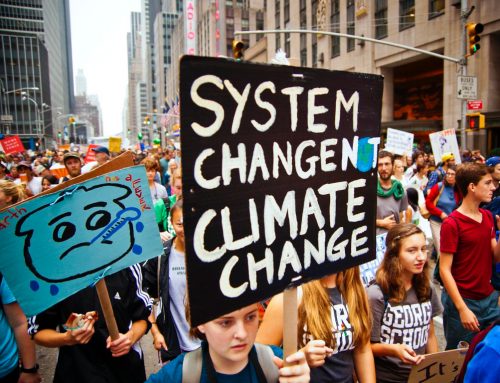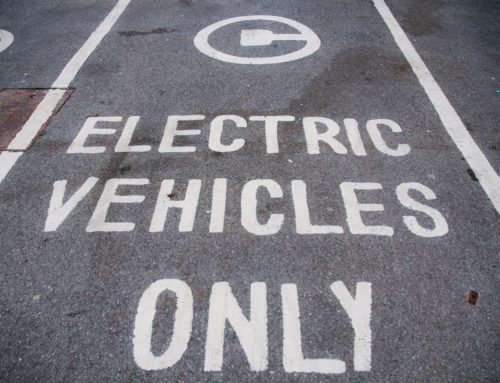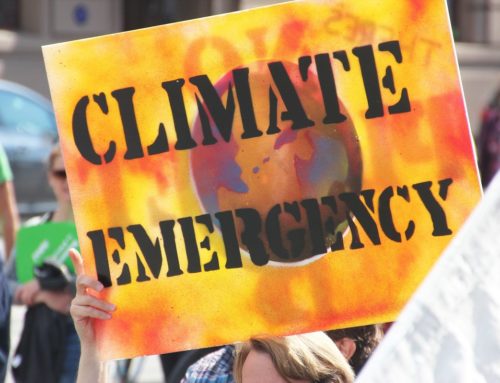At the core of my work for Eunomia is a belief in evidence-based decision making. Sometimes the evidence is stronger than others, and there is an element of art in selecting the assumptions that go into even the most rigorous lifecycle analysis or a cost benefit analysis. Taking a dispassionate approach to the evidence remains my aim – but there is no doubt that this has become increasingly difficult in the environmental sector as a whole, leading in extreme cases to some questioning the role of science in society.
My aim here is to explain some of the factors that are leading to increasing popular doubt regarding the veracity of science. Despite my advocacy of a scientific approach, such concerns about the modern practice of science have resonance. We need to restore science to the valuable, trusted role it should have in environmental policy-making: informing difficult policy issues – providing evidence that may lead us to curtail profitable activities, or make difficult changes to our lifestyles.
So much to know
Ironically, the very pace and range of scientific advance has contributed to science becoming less authoritative in the court of public opinion. In 1991, Eric Hobsbawm reflected on this in chapter 18 of his book The Age of Extremes:
“No period in history has been more penetrated by and more dependent on the natural sciences than the twentieth century. Yet no period, since Galileo’s recantation, has been less at ease with it.”
He traces this to the massive expansion of science, with its accompanying trend of specialisation, whose effect was that “even scientists increasingly required journals to explain to each other what was happening outside their own field.” While the most brilliant modern minds may reach an expert level in two or three fields, compare that with Thomas Young, who made discoveries in areas as diverse as physics, biology, optics, linguistics and Egyptology. In 1802 he gave a series of fifty lectures at the Royal Institution, setting out more or less the entire sum of scientific knowledge. His biographer Andrew Robinson called his book “The Last Man Who Knew Everything”; no twenty-first century scholar will challenge for that title.
Now science speaks to us of Higgs bosons and multi-dimensional super-strings, whose behaviour is utterly outside our experience, and often counter-intuitive. When not even scientists can fully understand one another, perhaps controversies such as those over the safety of genetically modified crops, fluoride in water and the MMR vaccine are inevitable. Even those of us with scientific training may find ourselves forced to develop opinions in areas where we have little knowledge, our views informed by non-scientific factors – wider cultural belief, our politics, gut instinct, whether we trust the author.

A difficult age: Hobsbawm pinpointed the problem of specialisation. Photo by Rob Ward, via Wikimedia Commons
As well producing results whose truth is anything but obvious, the fast pace of change and debate in some areas of science can be perceived as casting doubt upon the whole. Further, we are notoriously bad at evaluating probabilities and risks, and for those seeking easy, definitive answers, science is always likely to disappoint, especially at the cutting edge where theory has not been fully tested.
While this context helps to explain why science has come to seem mysterious and conflicting to many, I don’t find here the root of our distrust. Nor is it something we can or should look to change. I don’t think it is beyond us to see that experts understand things that we don’t, or to grasp that while there are areas of dispute, there is also plenty of consensus. Nevertheless, scientists can help remove the mystery from their work by taking a more active role in public discourse and seeking to explain their ideas, and their uncertainties, more widely. There is some indication that this can be successful. The Science Media Centre, which facilitates science-media relations, perhaps somewhat self-aggrandisingly, suggests that in the wake of the Fukushima nuclear disaster their facilitation of an open debate between scientists on safety issues meant that the UK nuclear industry suffered less of a public relations problem than in Germany.
Objective: objectivity
A more powerful impact on trust in science is the way that its objectivity has been called into question. There are well-known instances of science appearing to be subverted in order to serve other interests. Perhaps the most famous is the climategate scandal of “dodgy” data being used by climate scientists. Whether or not you believe that the data was suspect, the incident was certainly undermining. Some scepticism is a healthy thing, but if there’s no faith in the objectivity of science then we have a problem that surely goes right into the heart of the enlightenment ideal. At a practical level, if action is to be taken on pressing questions like climate change, belief in science will be essential to convince those currently sitting on the fence, let alone those with strong opposing views. So how do we go about this rebuilding?
At the core of the scientific method is publication in peer reviewed journals; critique by other authoritative scientists should make the system “self-healing”. However peer review is itself becoming problematic: journals proliferate in response and have editorial agendas (consider the peer reviewed Journal of 9/11 Studies) and vary in quality; and finding peers becomes challenging as specialisation becomes more pronounced. Large pharmaceutical companies have even been found to be undermining peer review by not publishing results of trials they have funded that don’t advance their financial interests. Similar charges are levelled at those developing GM crops. So how do we incorporate and choose between competing voices in policy making?
Mark Henderson has argued that we need more scientists in government. It is striking that only one UK MP, Julian Huppert, is a research scientist, and a cohort of scientist MPs might well drive more “evidence-based policy”, with greater confidence about evaluating conflicting evidence. However, it is unlikely that this solution will be delivered by current approaches to candidate selection.
Another option is to try to insulate science from outside influences. Chile is currently considering demands for a dedicated research ministry to provide independent advice. The separation of science from commercial interests is at best a partial solution, though. Such state scientists might still be seen as subject to political influence and career considerations. At an international level, the Independent Panel on Climate Change was a bold attempt to create an independent group of scientists, but has had difficulty maintaining its credibility. Environmentalists may point to the big business connections of prominent climate change sceptics, but they in turn argue that environmental scientists stand to gain personally and professionally from magnifying the severity and urgency of the climate change issue.
Perhaps the single greatest contribution that can be made to increasing trust in science is to promote transparency and dispel the air of secrecy around scientific research. Scientists’ personal integrity is important, but not sufficient. Where government funds research, it is vital that it ensures that so far as possible, raw data is made publicly available – one of the key concerns about climategate having been apparent secrecy in this area. This openness should also extend into the commercial world. This may seem difficult when discoveries may represent valuable intellectual property are at stake, but GlaxoSmithKline has announced that it has “fundamentally changed its business model to become more open to sharing intellectual property and knowledge”. We are yet to see how far this promise is realised, but it is encouraging that GSK sees benefits from a more open, healthy science community in which data is shared so that knowledge and progress is maximised.
The discoveries science has delivered in the last two centuries have been extraordinary, transformative – and the pace of discovery is accelerating. It is therefore critical that we make best use of scientific findings within the policy making process.
For science to play the lead role in helping us tackle our environmental issues, scientists must first recognise the challenge of demonstrably putting their house in order. Scientists and those interpreting their findings will always be human and fallible. However, if we can ensure that the process scientists operate is rigorous and independent we can minimise any individual bias and make sure scientific findings deserve the respect of the public and policy makers. If they succeed, we will all benefit from policy decisions based more on maths than myths.







Leave A Comment